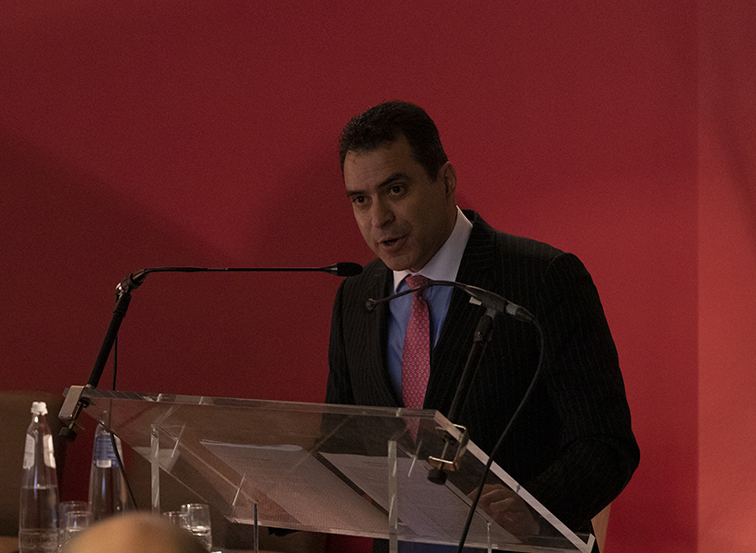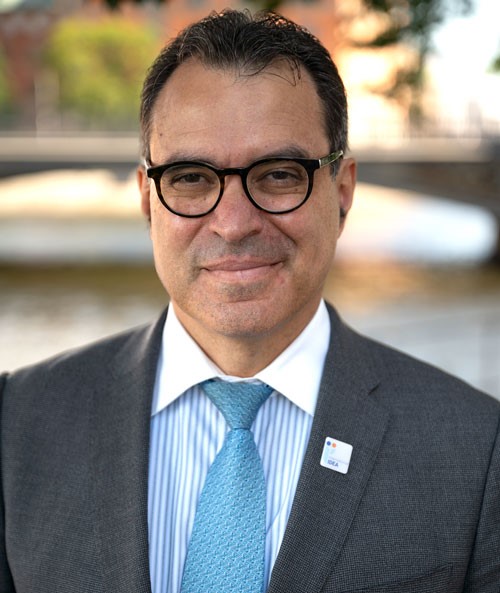Closing remarks at the launch of The Global State of Democracy 2019 Report in Brussels

Launch of the Global State of Democracy 2019 Report in Brussels.
This has been a treat. I want to thank all our speakers for a truly wonderful discussion. This is exactly the kind of debate that we would like to stimulate through the dissemination of our Global State of Democracy Report – a nuanced, empirically based, practically oriented conversation. Above all, a conversation that goes beyond the current funk about democracy.
And is it in that spirit that I would like to end the proceedings. I would just simply like to make 2 points that, I think, are often missed in the current discussion about democracy. They are both historical points, in a way. One goes to say that we should never take the democracy’s for granted; and the other that one should not dismiss democracy’s past so easily, that one should not belittle what democracy has achieved in the recent past.
Indeed, is true that the challenges faced by democracy are the greatest since the 1930s. But perhaps we shouldn’t be so surprised. I have the impression that rather than the idea of democracy itself is in crisis, it is the idea of the inevitable triumph of democracy that is under siege. Democracy had a good run in the final quarter of the 20th Century, and as it happened with capitalism, we thought that the good times would go on forever. Well, history has a way of reminding us that human projects are never so smooth and so simple.
And I tend to believe that this a Western misconception. We in the West like teleological visions, where the march towards a luminous future is inevitable. Perhaps that’s one of the many things that we Westerners would do well to learn from other cultures that accept contingency, circularity, and reversal as part of human fate. The truth is that there is nothing inevitable about the advance of democracy. The notion that all human beings are endowed with equal dignity and with the same right to participate in collective decisions; the notion that political power ought to be limited if it is to remain legitimate; the idea that the best protection for human dignity is not tribal bonds, but the existence of a body of rights, protected by law, in the face of which we are all equal; all of those are very new ideas that in many respects swim against powerful tides in human nature.
Inequality, the exercise of raw power, and allegiance to tribe and to those who are exactly like us, are the historical norm. We should always remember that the spread of democracy is an enormous victory against dark forces in our nature. Now all those ancestral forces are rearing their head again in different places around the world. Democracy is not spontaneous – it must be willed and it must be built. And because there are multiple ways to will it and built it, and because there are myriad lessons that have been learned in the past 40 years of democratic expansion, I would like to think that we need the work that IDEA does every day. I have no doubt that it is more essential now than 25 years ago. The Global State of Democracy Report is no more than a tool to guide the hard work that the preservation of democracy demands from us –as practitioners, as intellectuals, as politicians, as social leaders, as citizens— every day, lest we let the jungle grow back.
My second reflection is about the importance of taking the long view when we gauge the effects of democracy and about the importance of resisting the siren’s song of the presumed benefits of authoritarianism to deliver well-being to people. It is a reflection rooted in the experience of democracy in the part of the world where I come from, Latin America, but that, I think, has broader implications.
Forty years after the start of the wave of democratic transitions in Latin America, I would venture that, all things considered, the electoral side of democracy is mostly doing rather well in the region. Although there are problems and blemishes, most recently seen in Bolivia, blatant electoral fraud has become rather rare in Latin America. I would also submit that, even with enormous problems, the fulfillment of most civil, political, social and economic rights –some might say the veritable content of democracy—has seen progress over the past two decades in most countries. Despite serious problems of poverty, inequality, and marginalization, the region is moving in the right direction when it comes to social inclusion.
And I suspect that we are moving in the right direction, because democracy, with all the enormous flaws that we see in its workings in the region, is getting the job done of allowing the participation and representation of long excluded interests and, hence, of reducing socio-economic disparities. Between 1990 and now poverty in Latin America fell 18 points; extreme poverty is today one half of what it was in the 1990s. Even more remarkably, income inequality has declined. In 17 out of 18 countries in Latin America, the Gini coefficient went down over the past decade. Human Development Levels, as measured by UNDP, have grown non-stop for 4 decades virtually in every country, with the exception of Venezuela. These achievements are not rooted simply in economic growth, which in fact has been relatively weak for the past few years. There are deliberate policy decisions that are also at the root of this. For instance, public investment in social pursuits has grown from an average of 9% of GDP in the early 1990s to over 15% of GDP today.
Are there pending challenges? Of course. There are many and they are enormously complex. Poverty continues to afflict 30% of the population in the region; income inequality continues to be the highest in the world; with a couple of exceptions, tax systems continue to be precarious and unfair, with revenue levels that on average are half of those of developed countries; de facto powers still hold political sway well beyond what’s healthy for a democratic system; violence still poisons the daily life of our societies.
It is true - we have to tackle all that if we want our democracies to thrive and, indeed, if we simply want them to remain faithful to their ethos. But democracy in Latin America has social and economic achievements to show.
My contention here is that, with some time lag, the distribution of political power allowed by electoral democracy has manifested itself in sustainable social progress. A Latin America where the middle classes are, for the first time, more numerous than the poor is a region where the demand for public goods and services of decent quality will grow ever louder, as we’re seeing these days in Chile. A middle-class Latin America is a region where many people that for the first time have access to a decent house, a car, a bank loan, will make sure that governments do not play fast and loose with macro-economic balances, just as they will make sure that politicians do not shortchange public services in order to line their pockets.
Is this too gradual for our taste? Maybe. But let us not forget that it took the United States almost two centuries to realize the promise of equality of rights for the African-American population. And that it took Europe almost nine centuries to move from a parliament of nobles to a parliament elected by universal suffrage. These things are gradual.
What I refuse to accept, in the light of Latin America’s recent experience, is that the reduction of poverty and the creation of more inclusive societies demands giving up on basic checks and balances or demolishing any trace of an independent judiciary or closing down critical media outlets or jailing opponents on trumped-up charges or turning social protests into a crime or labeling as traitors those who exercise their basic right to dissent. We know better than that.
I’m not saying that authoritarian regime are never able to reduce poverty and social exclusion. Sometimes they are. What I say is that it is more than proven that democratic regimes worthy of that name, with checks and balances and unfettered civil and political rights, can do it too. And what I’m saying, also, is the memorable phrase once uttered by Saint-Exupery – humankind is not merely a herd that expects to be fed. No other is the message that we hear, loud and clear, emerging from the streets of Hong Kong.
Do not accept any wooden nickels. We have a mountain to do in Latin America and beyond in terms of building inclusive societies, where widespread poverty is but a faded memory, but democracy is our ally, not our obstacle.
In Latin America and so many other places in the developing world, my parents’ generation had the enormous merit of stepping out of a long authoritarian night and bequeathing us a set of democracies that despite their flaws are much better than the despotic disasters that were there before. The current generation has in its hands the daunting task of deepening democracy by creating more inclusive societies, without destroying democracy in the process.
That’s exactly what we’re up to. And with time lags, and with real dangers of reversion, at least in Latin America, we are largely succeeding.
As far as I’m concerned, the democratic glass, in spite of all, is half full and is incumbent upon us to keep on filling it up with social justice without giving up our most fundamental freedoms.
Thank you.
